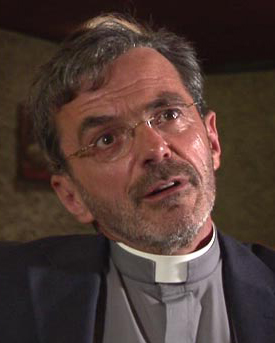Every time I sink into a slough of despond produced by the certain knowledge that the Anglican Church has a monopoly on batty priests, something turns up to give  me a helping hand out of the mire. This time it’s in the form of Roman Catholic priest, Raymond Gravel, a man who is not only just as daft as the dottiest Anglican prelate but exceeds most in native deviousness.
me a helping hand out of the mire. This time it’s in the form of Roman Catholic priest, Raymond Gravel, a man who is not only just as daft as the dottiest Anglican prelate but exceeds most in native deviousness.
Gravel was forced by the Vatican to relinquish his seat in parliament as a member of the Bloc Québécois; the Vatican does not allow priests to serve in public office – a restriction that can hardly have been news to Gravel when he first stood for the Bloc Québécois, even though he received a dispensation from his bishop to do so.
While an MP, he distinguished himself as a politician-priest chimera by opposing Bill C-484, which would have recognized injury of a foetus during a crime as a separate offence from an injury to the mother, and by supporting abortionist Henry Morgentaler’s receiving the Order of Canada – all of this while claiming to be pro-life. He also supports same-sex marriage and homosexual priests; he used to be a homosexual prostitute but all that is now behind him – as it were.
Lifesite News has done its best to expose the duplicitous Gavel and, since he has now been booted out of his position as a catechist in the Quebec Diocese of Joliette, he has decided to sue someone. After astutely assessing his options, he decided that Lifesite News is an easier target than the Vatican, so he is suing them for $500,000 in damages.
If he wins, Lifesite News will be shut down: a loss for Christianity, the pro-life movement, free speech and the Catholic Church.
Read more here.



